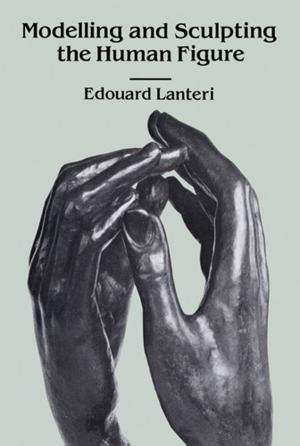| Author: | Friedrich Schiller | ISBN: | 9780486117393 |
| Publisher: | Dover Publications | Publication: | April 3, 2012 |
| Imprint: | Dover Publications | Language: | English |
| Author: | Friedrich Schiller |
| ISBN: | 9780486117393 |
| Publisher: | Dover Publications |
| Publication: | April 3, 2012 |
| Imprint: | Dover Publications |
| Language: | English |
“Essential reading.” — New Society.
A classic of eighteenth-century thought, Friedrich Schiller’s treatise on the role of art in society ranks among German philosophy’s most profound works. In addition to its importance to the history of ideas, this 1795 essay remains relevant to our own time.
Beginning with a political analysis of contemporary society — in particular, the French Revolution and its failure to implement universal freedom — Schiller observes that people cannot transcend their circumstances without education. He conceives of art as the vehicle of education, one that can liberate individuals from the constraints and excesses of either pure nature or pure mind. Through aesthetic experience, he asserts, people can reconcile the inner antagonism between sense and intellect, nature and reason.
Schiller’s proposal of art as fundamental to the development of society and the individual is an enduringly influential concept, and this volume offers his philosophy’s clearest, most vital expression.
A classic of eighteenth-century thought, Friedrich Schiller’s treatise on the role of art in society ranks among German philosophy’s most profound works. In addition to its importance to the history of ideas, this 1795 essay remains relevant to our own time.
Beginning with a political analysis of contemporary society — in particular, the French Revolution and its failure to implement universal freedom — Schiller observes that people cannot transcend their circumstances without education. He conceives of art as the vehicle of education, one that can liberate individuals from the constraints and excesses of either pure nature or pure mind. Through aesthetic experience, he asserts, people can reconcile the inner antagonism between sense and intellect, nature and reason.
Schiller’s proposal of art as fundamental to the development of society and the individual is an enduringly influential concept, and this volume offers his philosophy’s clearest, most vital expression.
“Essential reading.” — New Society.
A classic of eighteenth-century thought, Friedrich Schiller’s treatise on the role of art in society ranks among German philosophy’s most profound works. In addition to its importance to the history of ideas, this 1795 essay remains relevant to our own time.
Beginning with a political analysis of contemporary society — in particular, the French Revolution and its failure to implement universal freedom — Schiller observes that people cannot transcend their circumstances without education. He conceives of art as the vehicle of education, one that can liberate individuals from the constraints and excesses of either pure nature or pure mind. Through aesthetic experience, he asserts, people can reconcile the inner antagonism between sense and intellect, nature and reason.
Schiller’s proposal of art as fundamental to the development of society and the individual is an enduringly influential concept, and this volume offers his philosophy’s clearest, most vital expression.
A classic of eighteenth-century thought, Friedrich Schiller’s treatise on the role of art in society ranks among German philosophy’s most profound works. In addition to its importance to the history of ideas, this 1795 essay remains relevant to our own time.
Beginning with a political analysis of contemporary society — in particular, the French Revolution and its failure to implement universal freedom — Schiller observes that people cannot transcend their circumstances without education. He conceives of art as the vehicle of education, one that can liberate individuals from the constraints and excesses of either pure nature or pure mind. Through aesthetic experience, he asserts, people can reconcile the inner antagonism between sense and intellect, nature and reason.
Schiller’s proposal of art as fundamental to the development of society and the individual is an enduringly influential concept, and this volume offers his philosophy’s clearest, most vital expression.















